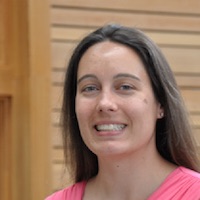Rapid funding aids COVID-19 research by top Gillings scientists
August 11, 2020

Dr. Timothy Sheahan

Dr. Lisa Gralinksi
Understanding of the novel coronavirus has evolved swiftly since its initial outbreak thanks to the perseverance of researchers like Lisa Gralinski, PhD, and Timothy Sheahan, PhD, both assistant professors in the Department of Epidemiology at the UNC Gillings School of Global Public Health.
Even in non-pandemic times, the search for new answers to pressing public health needs is continuous, but the funding for studies is slow to keep pace. In an effort to address these funding delays, Fast Grants, a new venture from the Mercatus Center at George Mason University, invites researchers to apply for grants of $10,000 to $500,000 — with the promise that application decisions will be made within 14 days.
The group recently awarded Gralinski and Sheahan a combined $280,000 for COVID-19-related projects.
Both Gralinski and Sheahan have been working with colleagues at UNC to advance research into SARS-CoV-2, the virus that causes COVID-19, specifically in the areas of viral pathogenesis, human immune response and development of therapeutic treatments.
Sheahan, a virologist, is part of the team that tested the broad-spectrum antiviral drug remdesivir, which gained FDA approval for emergency use treatment of COVID-19 after clinical trials showed that it improved recovery times for infected patients.
Gralinski, an immunologist, has been studying SARS-CoV-2 in mice and researching potential treatments that could improve human immune response to coronaviruses and the respiratory infections they cause.
Gralinski has received $180,000 in funding from Fast Grants to identify combination therapies that could potentially be used to improve health outcomes in patients with advanced respiratory disease due to COVID-19 infection. Her study would gather crucial pre-clinical data on COVID-19 treatment and provide doctors with information on how to combine antiviral therapeutics with immunotherapy drugs to treat advanced respiratory disease. The work could lead to fewer COVID-19 deaths across the globe and fewer patients needing intensive care.
“We have repeatedly observed that there is a limited therapeutic window for antiviral treatments in blocking coronavirus pathogenesis, even though replication is knocked down,” said Gralinski. “The hope is that by adding in a treatment that targets the immune response – which really mediates disease – we can effectively treat patients and help prevent so many severe and even fatal cases of COVID-19.”
Fast Grants awarded Sheahan $100,000 in funding to broaden his exploration into cutting-edge coronavirus response. He hopes to learn more about the antiviral activity of therapeutic antibodies in mice infected with SARS-CoV-2, with the goal of identifying and learning more about antibodies that are effective against the virus. His research may help identify therapeutics for COVID-19.
“There is a practical application to this work,” said Sheahan. “We are learning about what kinds of antibodies work best at neutralizing virus and looking for a potential therapeutic at the same time.”
The Fast Grants model is unique in a world of academic research that relies heavily on public and private funding. In contrast to the many institutions that require lengthy application processes and wait times, Fast Grants reached out to Gralinski and Sheahan to determine how the organization could best support their research.
Fast Grants is the latest grant program from Emergent Ventures (EV), an incubator fellowship and grant program for social entrepreneurs. Fast Grants are available to individuals and labs affiliated with academic organizations in need of additional funding to complete projects that address the COVID-19 pandemic.
“Previous avenues for funding scientific research are too slow for the world we now find ourselves in with COVID-19,” said Tyler Cowen, PhD, faculty director of the Mercatus Center and founder of Emergent Ventures. “With these grants, we will apply the EV framework of rapid review and funding to the individuals and institutions focused on combating the biggest threat of our lifetime.”
Because speed is integral to impactful COVID-19 research, Fast Grants has provided funding to Gralinski and Sheahan on the basis that their work will help with the pandemic in the next six months. The researchers will provide monthly updates to Mercatus on their progress, but are otherwise given complete discretion over the nature of their projects and use of the grants.
Contact the UNC Gillings School of Global Public Health communications team at sphcomms@unc.edu.
